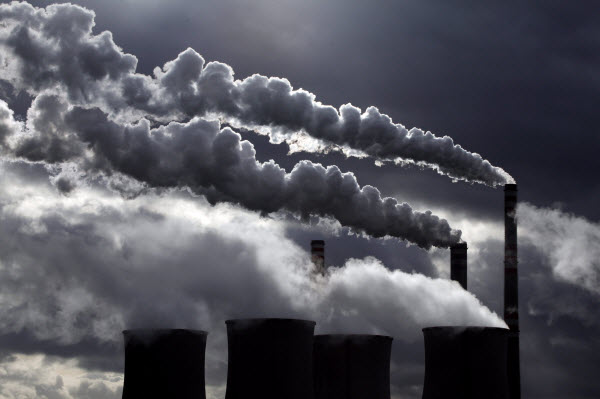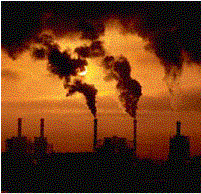technology
Apr 26 2024
There are those who say artificial intelligence will lift humankind to unimagined heights. "It's more profound than fire or electricity”, Sundar Pichai, CEO of Alphabet Inc. (parent of Google)…
Read More »
infrastructure
Mar 31 2023
President Biden expects to reduce U.S. emissions 50% below 2005 levels by 2030, and to arrive at net zero emissions from all the nation's power plants by 2035. "The gap between wishful thinking and reality is vast", says naysaying scientist Vaclav Smil.
"People don’t appreciate the magnitude of the task and are setting up artificial deadlines…
Read More »
governance
Apr 6 2019
It's been two months since the odd couple, 29-year-old Alexandria Ocasio-Cortez and 72-year-old Edward Markey, changed the weather in Congress with their Green New Deal resolution. We thought we'd wait until the tornado passed and the dishes stopped rattling before assessing the fallout.
It's an extraordinary document. Their brash attempt — it came just days after Ms. Ocasio-Cortez was sworn in as a Congresswoman — follows the orderly paragraph numbering and lettering traditional to legislation, but at one point veers off on 
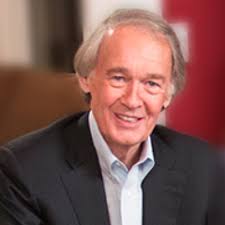
tangents that have…
Read More »
climate
Expect lawsuits unto the end of time
Jun 1 2016
Investigative reporting last fall by the Los Angeles Times and Inside Climate News revealed that Exxon hid research into climate change, all the while funding groups to debunk
global warming. That led to investigations of their own by a growing number of state attorneys general, with New York's Eric Schneiderman leading the charge.
But in a don't mess with Texas backlash, Republican Representative Lamar Smith of that state and chair of the House science committee has started a firefight on behalf of Texas-based Exxon, alleging a conspiratorial collaboration between Schneiderman's office and climate change activist groups, and calling on him to turn over all communications with such groups…
Read More »
climate
Oct 28 2015
That the Pope published an encyclical over the summer saying we must protect "our common home" and then said to a joint session of Congress that "it seems clear to me also that climate change is a problem which can no longer be left to our future generations" made it irresistible for deniers to again say that the cause of global warming mitigation has itself become a religion.
Several have made that case to characterize those who believe the planet is warming as being in the grip of blind faith. “Global Warming has become a religion”, wrote Richard Lindzen two years ago. For 30 years a professor of meteorology at MIT, he has been a leading figure working to discredit the science behind global warming claims, and in an article in a medical journal goes so far as to liken the climate "movement" to the eugenics mania of the early 20th century and the bogus genetic theories of Lysenkoism in Stalin's Soviet Union. He says about believers that what "gives meaning to their lives is the belief that they are saving the planet". They will "defend their religion with jihadist zeal".
"Global warming really has become a new religion", says Nobel Prize-winning physicist Ivar Giaever, "because you cannot discuss it…like the Catholic Church."
Another celebrated physicist, Freeman Dyson, long a professor at the Institute for Advanced Study in Princeton, is of like mind, calling climate change "both a science and a religion. Belief is strong, even when scientific evidence is weak."
A Wall Street Journal op-ed by Congressman Lamar Smith (R-TX) tells us that a top United Nations climate scientist, Rajendra Pachauri, acknowledged "the faith-based nature of climate-change rhetoric" when he declared that protecting Planet Earth, its species and ecosystems, "is my religion and my dharma". Nowhere else in the article is climate change branded a religion, yet in the zeal to affix that label, the one mention is enough for the article's title to be "The Climate-Change Religion".
The far-right Investor's Business Daily (IBD) wrote an editorial on the occasion of the Pope's visit titled, "Why Leftist Greens Love Pope's Global Warming Speech" that says, "For left-wing adherents of global warming, their faith holds all the comforts of a religion". It then belabors the notion with bullet points to show parallels that make the climate change movement a religion: in it one finds "Faith" in place of hard evidence; the "Original Sin" suffered by believers for "being born into a carbon-fuel using society"; believers face "Skeptics", just like in the medieval church; their "Indulgences" are carbon offsets and recycling; there is even the "Ritual" of Earth Day every April. "Heaven" is the day the world quits fossil fuels.
Incidentally, we found that this conceit was cribbed without attribution from a 2012 article at a website named American Thinker, which had much the same contrived list. It went on to say that the belief in "man-made global warming or climate change, or whatever it's called this week" has the essentials of any religion in that its pronouncements must be accepted on faith, and that faith in climate change "is a religion as well" that "like other forms of socialist totalitarian worldviews…is the top-down centralized government's last best hope of controlling the masses".
The editorial writers at IBD think along the same lines. Climate change believers — that could be you, the neighbors on your street, the folks in the office — are all Marxists who have "lost their faith in Marxism" and have "joined the Church of Climate Change".
no one we know
Both sides of the argument have their zealots, but the claim that it has become a religion for those in the general population who believe change is happening seems a desperate attempt to slap a pejorative label on the opposition when their own case is slipping away. One article titled "Global Warming as Religion and not Science" leads off with the Blaise Pascal quote, "Men never do evil so completely and cheerfully as when they do it from religious conviction". The implication is clear: the climate change religion does evil.
To argue that the millions who are persuaded that Earth is warming and the climate is changing operate on unshakable faith, follow rituals, etc. is way wide of the mark. What is common to them is worry and apprehension and fear and a concern that maybe we should be doing something about this. But that's not religion.
The public absorbs its beliefs from the media, and a stroll through the media over the last several years shows exactly that — anxiety over what's to come, as this sample of article headings makes clear:
"Climate report offers a grim forecast" (2014).
"Panel's warning on climate risk: Worst is yet to come" (2014).
"Climate signals, growing louder" (2014).
"In Greenland, ice and instability" (2008).
"Arctic melt unnerves the experts" (2007).
"A swiftly melting planet" (2007).
"Not even close: 2012 was hottest ever in U.S." (2013).
"Antarctic warming is speeding up, study finds" (2012).
"Antarctic thaw now unstoppable" (2014).
"By 2047, coldest years may be warmer than hottest in past, scientists say" (2013).
"In sign of global warming, 1600 years of ice in Peru's Andes melted in 25 years" (2013).
"Scientists warn of rising oceans from polar melt" (2014).
"Heat bleaches coral and a threat is seen" (2010).
"Swarms of stinging tentacles offer hint of oceans' decline" (2008).
"Starving puffins, stray whales, invading shellfish: something is very wrong on the East Coast" (2014).
"Clinging to a way of life on a disappearing land" (2014).
"Climate change seen posing risk to food supplies" (2013).
"Pentagon signals security risks of climate change" (2014).
"Sounding the alarm on climate change" (2014).
"Scientists trace extreme heat in Australia to climate change" (2014).
"The military takes on climate change deniers" (2014).
"Warmer water cited for rapid Antarctic melt" (2014).
"Greenhouse gases hit record high" (2014).
"Global warming concerns grow" (2014).
"2014 breaks heat record, challenging global warming skeptics" (2015).
"Climate strange — forget global warming and get ready for global weirding" (2014).
"In face of skeptics, experts affirm climate peril" (2009).
"Snow down and heat up in the Arctic, report says" (2014).
"Who cooked the planet?" (2010).
"Antarctic ice shelves are shrinking, study says" (2015).
"Baked Alaska" (2015).
"Study forecasts 70% loss of West Canada's glaciers" (2015).
"Is it global warming or just the weather?" (2015).
"Hotter planet fuels drought, scientists find" (2015).
"Asian glaciers melting faster" (2015).
(We didn't clutter the text with links, but ask for the source of an above story heading and we'll supply.)
If you are a doubter, your immediate reaction is probably "no wonder people believe, propagandized by this constant drum beat". Or you might say there are as many headlines that argue the opposite. But it's not a question of whether you find these article titles questionable or alarmist (also a preferred word along with "religion"). The point, once again, is that this is what has been influencing people, making them uneasy, causing them to think something worrisome is happening, filling them with foreboding — but, again, that is neither faith nor religion.
Rather — and here we risk a name-calling spat — those who are convinced that the planet is changing have the better case that the religious among us are the deniers. The believers read of or view evidence everywhere — glaciers and ice caps and permafrost melting, reefs bleaching and dying from oceans acidifying, monthly and yearly temperature records set. They ask, if the deniers reject it all by their blind faith through which nothing penetrates, isn't that the verifiable religion?
The deniers want proof. The IBD editorial attacks global warming claims as "faith-based — lacking hard evidence". The AmericanThinker piece says, "The essential feature of any religion is that its pronouncements are to be accepted on faith, as opposed to hard evidence". A British website called "Numberwatch" calls out "Global Warming as Religion and not Science". It tells us that "Faith is a belief held without evidence" and summons Thomas Huxley to proclaim, "scepticism is the highest of duties; blind faith the one unpardonable sin".
But insistence on "hard evidence" before according belief poses a unique problem in the case of climate change. If it is happening to the degree that some of the climate models predict, we cannot wait for absolute proof from Nature, which is under no obligation to provide proof to humans. Doing nothing is analogous to not attempting to treat a mystifying disease until medical research conclusively discovers its pathology, while in the meantime the patient dies. The evidence may not be "hard" but the evidence abounds. Shutting out the evidence we see all over the planet because it doesn't come with correlative proof of cause is what fits well with religion's hallmark of permitting no deviance from doctrine.
Comment?
archive
Aug 29 2015
Vacationing on his ranch in the August before 9/11, George W. Bush famously brushed off a briefing hand-delivered by a CIA agent warning “Bin Laden Determined to Attack Inside the U. S.”. But it was his reaction to Katrina, when once again away from the White House vacationing at the ranch, that finally sent his approval ratings into…
Read More »
environment
Years of court fights in the offing
Aug 26 2015
"Within minutes" said The New York Times. "Minutes after", said The Wall Street Journal. Both were clocking how fast after the EPA announced the "rule" for President Obama's Clean Power Plan that the attorneys general of 15 states announced their intention to file suit to block the program.
Speaking for the group, the attorney general of West Virginia, a coal mining state that will be affected more than others, said that the final rule "blatantly disregards the rule of law and … represents the most far-reaching energy regulation in this nation’s history, drawn up by radical bureaucrats and based on an obscure, rarely used provision of the Clean Air Act". For the Journal, "This abuse of power is regulation without representation. The damage to growth, consumer incomes and U.S. competitiveness will be immense".
The final EPA (Environmental Protection Agency) rule requires a 32% cut in power-plant carbon-dioxide emissions by 2030 relative to 2005 levels. That's a bit steeper than the 30% contemplated by the agency a year ago , but the 25% interim reduction originally intended for 2020 has been pushed to 2022 in consideration of the industry's concerns for the difficulty of meeting the original target.
Each state will be required to file with the EPA by 2018 its plan to meet its objective. How much each state must cut back its emissions varies according to what it emitted in the benchmark year of 2005. Each state will be free to develop its own plan employing a mix of solutions from power plant fixes to wind and solar renewables and even state or regional markets for trading pollution permits commonly called “cap-and-trade”. That last method worked spectacularly well in an alliance of northeastern states to reduce acid rain, yet its advocacy is curiously muted, because somewhere along the years, lawmakers inexplicably turned up their nose at what is, after all, a market-based approach.
The final rule gives existing nuclear plants more credit for having already contributed to the goal because they emit no CO2. Efficient use by customers was removed as a measure of emission reduction; the industry objected because utilities can't dictate habits. The EPA made a big change for renewables. Once just one of the options, the agency has decreed that they must constitute at least 28% of the energy mix by 2030. Nationally, renewables accounted for 13% of energy production last year.
to the barricades
Five Republican governors so far have said they will defy the regulations, including two presidential hopefuls, Scott Walker of Wisconsin and Bobby Jindal of Louisiana. The others are Greg Abbott of Texas, Mike Pence of Indiana and Mary Fallin of Oklahoma. In a letter to Obama, Walker wrote of the “staggering costs it would inflict on Wisconsin’s homes and businesses,” that “it is difficult to envision how Wisconsin can responsibly construct a state plan.” Scott Pruitt, Oklahoma's attorney general, is petitioning for a preliminary injunction against the Clean Power Plan based on a 1958 Supreme Court precedent in Leedom v. Kyne in which "an agency exceeds the scope of its delegated authority or violates a clear statutory mandate”.
It was Mitch McConnell who set the protest movement in motion when in March he sent letters to all 50 governors urging them to ignore the EPA 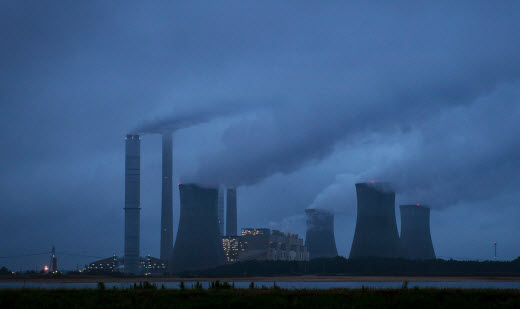
program and its requirement to submit an emission reduction plan. It was not simply an unusual action but an abuse of his position as Senate Majority Leader, which carries the implicit threat to states that if they don't march to his commands, there could be payback in what laws do or don't get passed.
Back then, The New York Times reported McConnell "coordinating with lawyers and lobbying firms to try to ensure that the state plans are tangled up in legal delays". By when Obama announced the plan, "the small group that had begun its work at [the pro-business lobby] the Chamber of Commerce had expanded into a
vast network of lawyers and lobbyists ranging from state capitols to Capitol Hill, aided by Republican governors and congressional leaders".
McConnell's efforts are aided by the American Legislative Exchange Council, or ALEC. A conservative advocacy group, ALEC's business is to spoon feed model legislation to state legislatures for them to vote into law. Their lawyers have drafted two model bills for the roughly two-thirds of state legislatures now under Republican control. In one, although state environmental agencies have for decades worked directly with the EPA on Clean Air Act matters, ALEC proposes that a state's agency must now seek the state legislature's approval of any emission reduction plan before submitting it to the EPA. The second bill requires as well that all legal challenges be resolved before any submission, the intent clearly being to endlessly delay any submission with fabricated challenges.
If a state doesn’t produce a plan, the EPA would impose one, but that raises the question of how can the federal government enforce compliance other than by withholding funds? Additional to the legal challenges to the EPA's rule, non-compliance promises to be a second front that will be fought in the courts for years to come. We would return to John C. Calhoun and his advocacy of "nullification" under which states could declare null and void federal laws that they viewed as unconstitutional. The Wall Street Journal's editorial page is all for it.
"States can help the resistance by refusing to participate. The Clean Air Act is a creature of cooperative federalism, and Governors have no obligation to craft a compliance plan. The feds will try to enforce a fallback, but they can’t commandeer the states, and they lack the money, personnel and bandwidth to overcome a broad boycott. Let’s see how much “clean power” the EPA really has.
Of course, if a Republican wins the White House, he or Ms Fiorina could simply halt the entire reform.
For the moment the Obama administration has the upper hand. The Supreme Court ruled in 2007 that carbon dioxide (CO2) is a pollutant subject to EPA control under the Clean Air Act of 1970, and has upheld the EPA’s authority to curb CO2 three times in the previous seven years. Early this year, it ruled 6-2 that 28 Midwestern and Appalachian states are subject to EPA's cross-state air pollution rule that limits power plant emissions blown into downwind Northeastern states. And just this June, a federal court dismissed a suit against the EPA by the nation’s largest coal company and 14 coal-producing states that sought to halt the Clean Power Plan. That will of course be appealed.
power down
Faced with shutting down older coal-fired plants not worth retrofitting, the power industry says it will also have to write off billions of debt stilled owed for the building of newer facilities. Moreover, the renewable mandate requires billions of dollars for transmission lines to bring in solar and wind power, and pipelines to feed natural-gas to replacement power plants.
But the power industry has had a long run with coal, first used for electricity 130 years ago, and has successfully fought off retrofitting pollution controls one administration after another (when George W. Bush and Dick Cheney took office, they aborted 51 suits by the Clinton administration that would have forced pollution controls much sooner than now).
the negatives
The Clean Power Plan will cost "hundreds of thousands of jobs" (says the Heritage Foundation), electricity customers will see steep rises in their monthly bills when the cost of conversion to other than coal is passed on to them, and taking coal-fired plants out of service could result in brown outs or worse. Those are the arguments that you will be hearing in the years to come from the power industry and politicians in their keep.
There are not hundreds of thousands of jobs to lose. Coal mining has been in steady decline, down to 80,000 jobs in 2013, and there are 60,000 others who work in power plants. These are significant numbers, but all coal power plants will of course not be shut down, and for the rest, how is the nation to progress from a 19th century technology (450,000 coal miners in 1900) if we are forever anchored to preserving these particular jobs. The same faction that now anguishes over coal mining jobs had no problem with exporting an estimated 6 million manufacturing jobs when they championed globalization and free trade.
Moreover, as should be obvious, the building of new plants and the conversion of old ones to natural gas, plus the infrastructure build-out for alternate energy sources such as wind and solar, are what will create the hundreds of thousands of jobs. Clean energy now delivers three times as many jobs per dollar invested as fossil-fuel investments.
Yes, electricity charges will rise — significantly in areas still heavily dependent on coal for power generation and therefore with the most to do to meet new standards.
The White House claims families will save $85 on their annual power bills by 2030, which, even if possible, evades what those families will be paying in the interim. Additional to the conversion costs passed through to customers, the new systems can only be less efficient once on line. Sun and wind are intermittent, and must be backstopped by fossil-fuel plants, "which must be cycled up and down depending on whether the wind is blowing or the sun is shining", explains The Wall Street Journal. "This cycling reduces efficiency for the backup coal and gas plants in much the same way as stop-and-go driving cuts automotive fuel efficiency". That will add to cost.
Simultaneously, though, it is easy for a homeowner to cut energy bills with more conscientious use. And the Internet of Things is coming on strong to 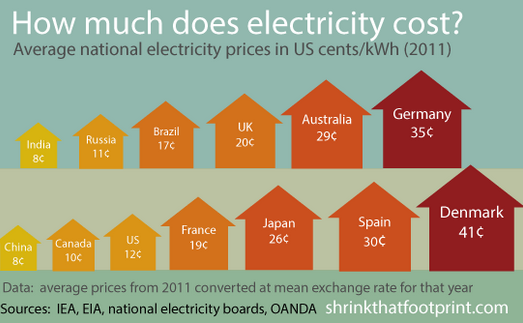
We should recognize that electricity in the U.S. is cheap. Ask the rest of the world. We've been spoiled.
give us the smart meters that constantly adjust use by time of day and presence or absence of people in the home. The steady decline in the cost of solar will find us outfitting our houses to sell power back to the utilities. Capturing the Sun's energy with our rooftops makes for a revolution in energy.
Reliability is a valid issue. The national electrical grid of 3,200 utilities that deliver power over 2.7 million miles of power lines is the most essential of all industries — what Bloomberg/BusinessWeek called "the largest machine in the world". Conversion is complex and disruptive. Reworking the grid to "pick up" gas, wind and solar wherever it is found will be a nightmare of permits and eminent domain takings. Changing the power grid is a generational matter.
But the nation can't stand still. Strengthening the fragile and vulnerable grid is essential. Much as we see nothing done while other infrastructure collapses, we will now witness a protracted fight waged by those who insist on holding the nation back from progress.
Comment?
environment
Gives go-ahead to Arctic drilling
May 29 2015
How to explain a president who had to deal with the catastrophic blowout in the Gulf of Mexico that killed 11 and spewed some 5 million barrels of oil for 86 days, yet now has unaccountably invited a still greater disaster by giving conditional approval to Shell to once again attempt to drill in the Chukchi Sea northwest of Alaska, one of the most hostile environments on Earth?
The area is shallow — drilling will be in only 140 feet of water, which does not compare with the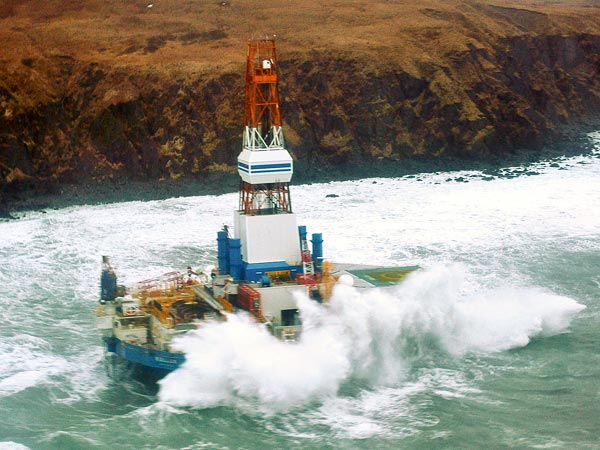
Shell's drilling platform aground in Alaska
Deepwater Horizon that exploded while operating in 5,000 feet of water in the disaster of five years ago. But shallow waters can produce much more turbulent wave forms, up to 50 feet high, in a region known for violent storms.
message not received
Shell has hardly won anyone's confidence with a record of mishaps beginning with its prior attempt to drill three summers ago. After delays by sea ice, a $400 million containment dome it had constructed to cap a well in case of a blowout was "crushed like a beer can" in a testing accident.
Shell had already spent $292 million on upgrading its drilling platform named Kulluk when, in preparing to resume drilling in 2013, the company chose January in which to move the platform across the Gulf of Alaska to Seattle for further maintenance.
Kulluk is circular with the diameter of a football field and is half the weight of the Titanic. On the voyage south, its tug lost four engines to sea water intake, the drill rig broke its tow lines in 40-foot seas, a cutter tried in vain 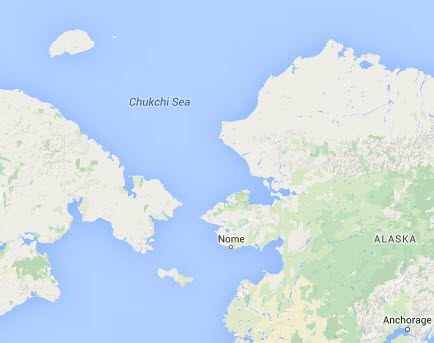
to tow both stricken vessels, a second towline snapped when yet another ship made the attempt to control the platform, the crew had to be plucked from the drill ship by Coast Guard helicopters, and after a third towline snapped with two ships pulling the Kulluk, 50 knot winds and 35 foot seas made the risk of lives too great and forced the rescue crew to cut the drilling platform loose to run aground on Kodiak Island.
A lengthy article in the New York Times Sunday magazine section recounted the cascade of troubles, but the message has not registered with Shell. This page reported the Shell calamities over two years ago with something like relief that the oil giant might be discouraged, but no.
all fixed
The Interior Department has evidently seen to the prevention of a recurrence of the Deepwater Horizon debacle with and new safety regulations and "significantly strengthened and updated drilling regulations", as reported in The New York Times. Safety requirements on blowout preventers have been tightened, too.
But the problem of Deepwater Horizon was that the blowout preventer could not be activated. And another branch of the Interior Department undercuts some of the lofty assurances that all is now well. Its Safety and Environmental Management unit says "the new regulatory system has yet to show measurable improvements". The problem is humans making mistakes, says this Wall Street Journal report.
But the greater concern still is the harsh conditions well out at sea. The Alaskan Arctic has no deepwater port. The closest is in the Aleutian Islands at Dutch Harbor, a thousand miles to the south through the Bering Strait.
The Coast Guard lacks an adequate presence in the region. The Congressional Research Service says at least $3 billion is needed for equipment and ships such as icebreakers, which would be critical for reaching a stricken drilling platform in a sea filled with ice floes, but the Obama administration has offered only $8 million “to study” building one. The Coast Guard has only one of medium size and two heavy-duty ships, both from the 1970s and both inoperative. Former Coast Guard Commandant Robert Papp wanted six. He warned Congress in 2011 that we are dangerously unprepared to deal with a major spill in the Arctic. What if Shell brings in successful wells, a storm pulls a platform anchor and the giant bulk of the shifting platform snaps a drill stem? What will the challenges be in capping a well, and what happens if the job has not been completed when sea ice begins to form at summer's end and ships working to control the spill must instead let it run over the winter or risk getting frozen in the ice?
1 Comment
congress
Disagrees with half of America's Republicans
Feb 5 2015
As part of the vote on the Keystone XL pipeline, Democrats forced Senate members to state their beliefs for the record on climate change. Senators were first asked to vote on the amendment "It is the sense of the Senate that climate change is real and not a hoax" put forth by Rhode Island Democrat Sheldon Whitehouse, who has lectured the Senate weekly 84 times on the subject.
The vote was 98-to-1 in agreement, "a historic shift for many of my Republican colleagues", says Whitehouse. You are probably assuming that the lone vote against was from Oklahoma Republican James Inhofe, famous for saying that global warming is "the greatest hoax ever perpetrated on the American people". But it wasn't. The lone vote was from Sen. Roger Wicker of Mississippi. Inhofe voted "aye", saying the true "hoax" is that climate change is the result of human activity.
A second vote on "climate change is real (and) human activity contributes to climate change" failed 59-40 to overcome a filibuster. That says a full 40% of the Senate doesn't think humans have had anything to do with the changing climate.
When "significantly" was added ("...human activity significantly contributes...") in a third vote, nine of the 59 fell away. Only 50 thought the human impact significant.
america disagreesThe votes against human contribution to climate change came from Republicans. No surprise there, as even the climate change issue is bafflingly politicized. But to illustrate just how behind the curve are the folks we send to the Senate, out came a poll at the same time that said half of American Republicans support government action to curb global warming and would vote for a candidate who campaigned on fighting climate change. The poll was conducted by a research organization for the New York Times, Stanford University and environmental group, Resources for the Future.
It will be interesting to see whether candidates for the 2016 Republican nomination take note of these findings. In the run-up to the 2012 election, all save Jon Huntsman denied the science and opposed any remedial action.
Comment?
energy
Power companies and friends want a cloudy future for solar
May 14 2014
The cost of solar panels has fallen to a level that the federal subsidies that propped up the industry while it developed efficiencies may no longer be needed.
Still, only 1% of power company customers have installed solar. But that’s too much for the utilities that produce power from fossil fuels. They want to crush the upstart industry before it makes any further headway. By free market competition? By innovation, say, or lowering prices? Why, no. Instead, the power generating companies have gone to the legislatures in state after state to have special laws enacted which aim to tax…
Read More »
energy
It depends on where in its life cycle you measure
May 25 2013
Canada’s Alberta Province tar sands are a viscous bitumen, described as peanut-butter thick, that releases more carbon dioxide than other forms of oil. Just how much more is debated. We’ll get to that.
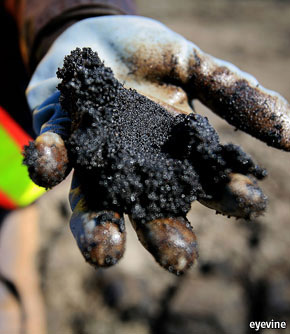
The first strike against the oil is that to get at the sand requires felling the natural carbon reservoir of the original boreal forests. The doubling to 1.8 million barrels of tar sands production daily that is projected by Canada's environmental ministry over the coming decade leads to cutting down some 740,000 acres of trees that will release their carbon into the atmosphere.
two recovery processes
Bitumen near the surface is strip mined. The deeper bitumen is…
Read More »
energy
May 14 2013
President Obama might be wishing he had ruled on the Keystone XL pipeline back in the fall of 2011 rather than postponing his decision until now. It has since ballooned into a major test of his presidency, with protests and arrests at the White House gates and a nation sharply divided between those heralding energy independence delivered by a deus ex Canada versus others sounding the tocsins to warn us of climate cataclysm from dirty oil.
Obama’s pointedly delaying his decision until after the election intimated that he favored the pipeline and was avoiding angering his environmentalist base with that decision. Those concerned about climate change were naively jubilant,…
Read More »
governing
Jan 15 2018

Scott Pruitt has strong religious convictions, according to his pastor in home town Broken Arrow, Oklahoma, where he was a deacon and taught Sunday school. In Washington he has been known to attend Bible study sessions with like-minded government officials.
How that explains his policies as Trump's administrator of the Environmental Protection Agency (EPA) comes clear when he talks about Biblical principles, as on a road trip in Iowa with a National Review…
Read More »
climate
Sep 27 2017
The lethality and destruction of two monstrous hurricanes with Maria in their wake has brought the subject of climate change to the fore, bolstering the argument that global warming is the cause of these storms and man is the major contributor to global warming.
That's not what climate scientists say, however, although many may privately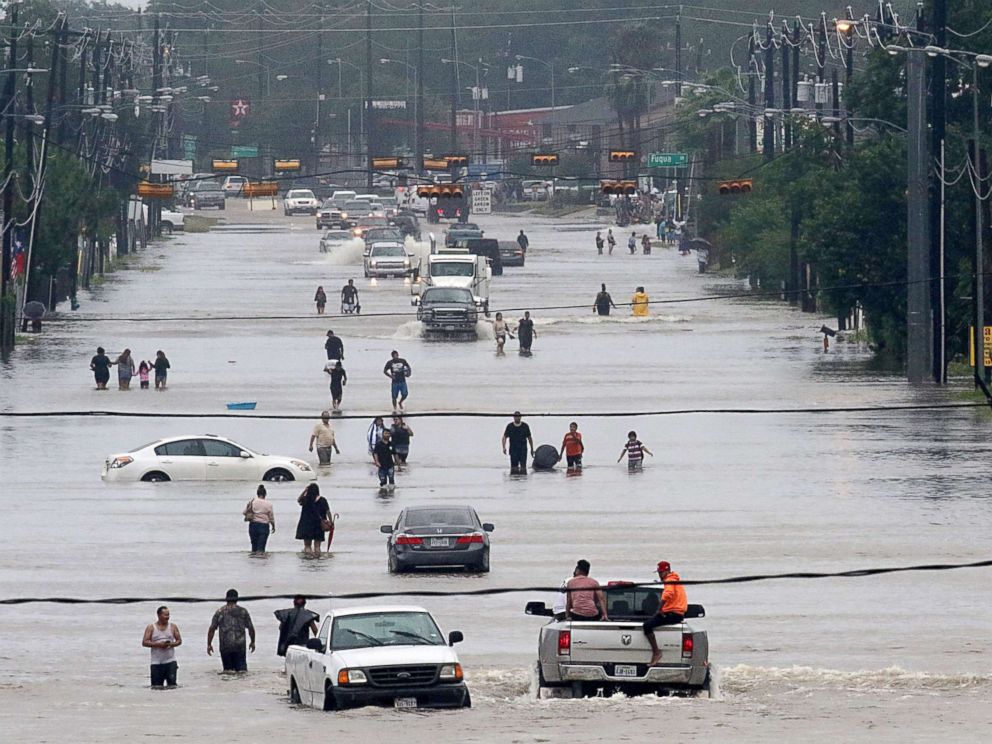
think so. James Hansen, formerly NASA, now at Columbia University, and who sounded the early warning in the 1980s…
Read More »
energy
The world is for it, except the usual suspects
Feb 6 2016
A year ago fall, 74 nations and more than 1,000 investors and businesses — companies such as Shell, Dow Chemical and Coca-Cola — signed a declaration calling for a global price on carbon and requiring countries to tax industries for their emissions of carbon dioxide.
Among the signatories were seven American states — California, Maryland, Massachusetts, Oregon, Rhode Island, Vermont and Washington — of the nine that have already embarked on permit 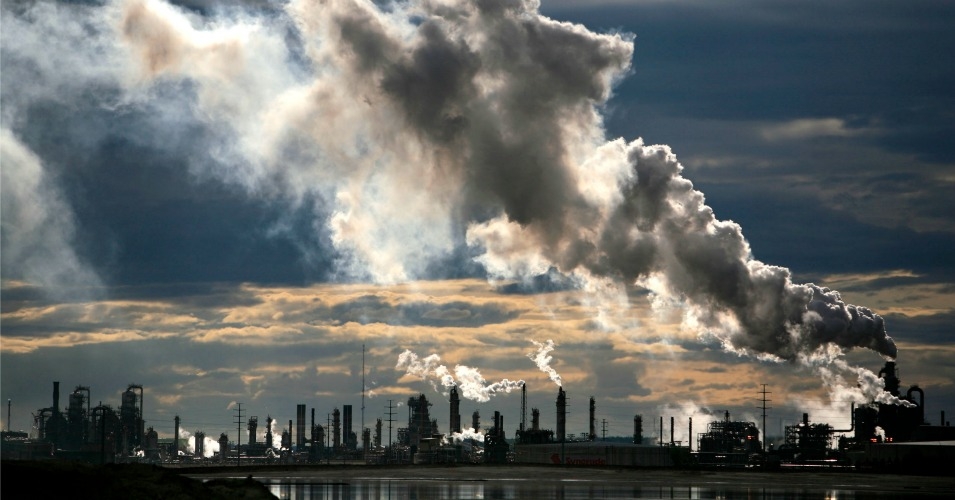
trading programs to control emissions. Another signer was China, now the world's biggest polluter (and choked by smog), which has these same "cap-and-trade" operations running in seven provinces.
“The most powerful move that a government can make in the fight against…
Read More »
global warming
Jan 25 2015
"A human role in climate change is acknowledged by every single prominent climate skeptic" admits an article in the conservative Weekly Standard magazine. An op-ed in The Wall Street Journal acknowledges "that carbon-dioxide levels in the atmosphere have increased due to the burning of fossil fuels, and carbon dioxide in 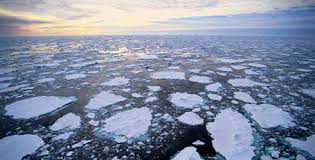
the atmosphere is a greenhouse gas". The featured article in the Wall Street Journal's weekly "Review" section said climate change is a "settled matter" and that "humans are influencing the climate… due largely to carbon-dioxide emissions from the conventional use of fossil fuels… is no hoax".
So what's happening? Are the global warming deniers (who prefer to be thought of as skeptics) throwing in the towel? The answer to that is 'no', witness that the titles of those articles were "Climate Cultists", "…Flat Wrong on Climate Change" and "Climate Science Is Not Settled".
Nevertheless, the skeptics seemed to have evolved from earlier absolutist positions. But their decades-long campaign to paint global warming, climate change and human involvement in both as a fraud has been so successful that they have left behind broad swaths of the population — and the politicians who pander to them — still believing original doctrine. As recently as this past June the Pew Research Center found that 26% of the public think there is no “solid evidence that the average temperature on Earth has been getting warmer over the past few decades”. Those beliefs hew to partisan lines: 46% of Republicans agreed with that statement compared to 11% of Democrats. Newly crowned Senate Majority Leader Mitch McConnell says, "For everybody who thinks it's warming, I can find somebody who thinks it isn't". Likely seeker of the presidency Senator Marco Rubio, Republican of Florida, rejects outright that climate change is caused to a significant degree by human activity. And James Inhofe, the new chair of the Environment and Public Works Committee, which (of all things) oversees the Environmental Protection Agency, famously called global warming "the greatest hoax ever perpetrated on the American people".
He said that back in 2003, however. How about now? In 2012 he published a book with "The Greatest Hoax" in the title and scolded us with, “God is still up there. The arrogance of people to think that we, human beings, would be able to change what He is doing in the climate is to me outrageous”.
looking for something else
To combat climate activists, the dissidents devote their energies to finding fault in the research of others. The earnest work by scientists worldwide is met with derision from naysayers who call it a "climate industry" seeking to perpetuate research grants and paychecks.
A recent Journal op-ed was devoted entirely to tracking down and debunking the (multiple, as it turns out) sources of the claim that 97% of scientists believe that climate change is man-made. The notion that warming is caused by variations in the Sun's energy was another attempt to decouple Man as cause. That claim still crops up despite findings that the variations were not strong enough to account for heat rise.
Or maybe it's the Earth's wobble. Texas Representative Steve Stockman was incredulous to learn when questioning a White House official that the Earth's wobble, which is credited with ending ice ages, was left out of climate computer models. That had to be put to rest in another op-ed, this one in The New York Times, by a NASA scientist who wrote, "The time scales involved are on the order of tens of thousands to hundreds of thousands of years… we don’t normally include these factors in 100-year climate projections".
upgrade
Not so easily dismissed by the climate-concerned is the gift that Inhofe's God gave the skeptics by keeping the temperature comparatively stable over the last dozen-or-so years, a plateau that has put climate scientists 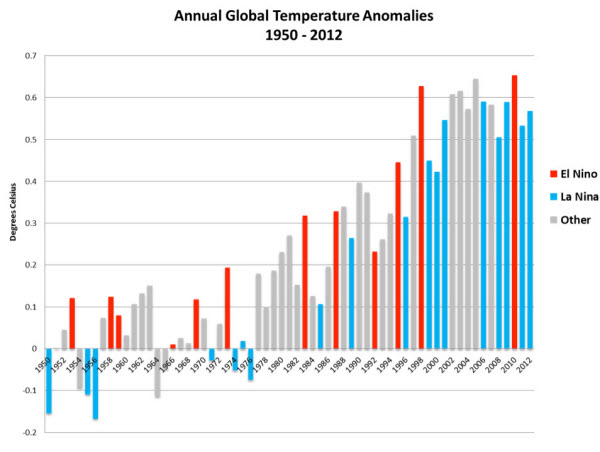
on their back foot, unable to explain it except to theorize that warming has shifted from the atmosphere to ocean depths. This has caused some gloating, as from Journal columnist Holman Jenkins noting how "thoroughly the bottom has fallen out of such efforts directly to link human greenhouse-gas emissions and global average temperature". The hiatus has even caused some notable skeptics, such as Richard Lindzen and Pat Michaels, to conclude that we've already seen most of the temperature rise that is likely, never mind a future of ever-increasing greenhouse gas emissions.
Climate activists are quick to point out that while there may be a plateau, it is a high one. The 2007 report from the U.N.’s Intergovernmental Panel on Climate Change (IPCC) had already said that the 1990s was the warmest decade on record. Then came the 21st century, with its first 13 years among the 14 hottest on record. And now the Japanese Meteorological Agency, the first of the four major global temperature recorders to announce,
has said 2014 was the warmest year on record.
finding fault
Conservative media regularly greet with sarcasm the assessments issued every five or six years by the "self-selected scientists" and "self-appointed experts" of the IPCC. The "plateau in global average temperature is the biggest embarrassment for a supposed scientific 'consensus' since Piltdown Man", exults The Weekly Standard. About the "jargon-filled" report the magazine summoned Churchill's quip that “by its very length, it defends itself against the risk of being read”. Having it both ways, it then chides other media for "generating predictable headlines" based only on the summary rather than those 2,000 pages, which anyway are unimpressive for not being an "original scientific inquiry but a wide-ranging literature review". The IPCC doesn't pretend otherwise. The assessments are a peer review of the research of hundreds of scientists over the preceding years.
In May, soon after the final release of the IPCC report, the Obama administration issued its own quadrennial National Climate Assessment which the Journal's editorial and opinion page dismissed as
"the only political project grandiose enough for President Obama...playing the old classics of unscientific panic...We have now reached the junkie's-craving phase of the climate-change story, where bigger and more frequent fixes are necessary to keep alive the euphoria of saving the world" from "droughts, floods, heat waves, torrential rains, wildfires, polar-vortex winters and other indicia of the end of day. Good thing we've been building that ark in the backyard".
models not so super?
As outright denial of a warming planet has become a losing proposition, the dissent has focused on the unreliability of the computer models that project the future rising temperatures. Bias is assumed going in, because, while the models are built by different clusters of climate scientists around the world, all are assumed to be united by a common belief in catastrophic global warming. As proof, the deniers feasted on a trove of e-mails leaked from the University of East Anglia in England a few years ago and found what appeared to be the scandalous cover-up of scientists substituting data that better fit what they hoped to prove.
matching the past
More significantly, the skeptics cite how inaccurate the computer models have been. When actual past data is plugged in, the models have had difficulty replicating what actually happened to the climate in those years. Past models missed the rapid warming of the Arctic in recent decades, for example, but when the models were tweaked to match that rise, the rest of the modeled planet grew too hot compared to what actually happened. “Almost anyone would say the temperature rise seen over the last 35 years is less than the latest round of models suggests should have happened”, according to Carl Mears, the senior research scientist at Remote Sensing Systems, a California firm that analyzes satellite climate readings, quoted in The New York Times.
The climate models depend on how a plethora of data streams from the physical world interact and influence temperature and climate. Reworking the weighting of these influences is derisively called "computer knob-twisting" by the denialists — except that is exactly how one arrives at whether a model has things right. The naysayers at The Weekly Standard warn us that the ability to match the past is no guarantee that a model will correctly foresee the future and they come up with what they call "this startling sentence" in the IPCC report: "The ability of a climate model to make future climate projections cannot be directly evaluated." Well of curse not; the future hasn't happened yet. It's an example of how the obvious is played to sow doubt.
cloud cultists
Those contesting the validity of predictions have hit upon the deficiency of one such input to argue that the models can't be trusted: their failure to account for clouds. “There remain significant errors in the model simulation of clouds", the IPCC admits in its most recent report. "It is very likely that these errors contribute significantly to the uncertainties in estimates of cloud feedbacks and consequently in the climate change projections”.
Clouds matter because their brightness — their water vapor — reflects sunlight away from Earth. Indeed, our article on geo-engineering recounted the belief that spraying clouds with salt would make them brighter still, the moisture condensing around the salt to make shiny droplets.
Computer models divide the Earth into a grid with a "virtual weather station" at each corner at which atmospheric variables must be calculated. A typical resolution is a grid with each cell 62 miles to a side (100 kilometers). And the models are 3D — they then divide each cell into layers of atmosphere. Once 10 layers deep, more recent models run to 30 layers.
Tighter resolution than 62-mile squares require much higher computational power for models, which already need plenty of juice. The general rule is that halving the dimension of the cell sides, thus quadrupling the number of cells, increases the computer power needed by a factor of 10.
At any level of resolution, clouds are intermittent and constantly on the move and the weather stations in a model must compute across time how the average temperature and humidity produce a cloud canopy.
Much like atmospheric layers are the oceans, for which the climate models also use 30 layers to try to assess what is happening at different ocean depths.
Together, clouds and oceans make for easy targets for deniers to snipe at and use as proof that their complexity means climate models can never be accurate. Cells 60 miles to a side give a distance such as New York City to Washington, D.C., only four cells, yet weather is not uniform in areas that wide, they can assert. And if the models are not accurate, if they can't be trusted, they should have no influence on policy.
sensitivity
Climate dissidents have excitedly trumpeted some recent scientific papers that factor in the "plateau" and make the case that the temperature rise could be more gradual than earlier predicted. Whereas we added another 25% to our historic contribution of carbon dioxide into the atmosphere over those 16 years, the temperature rise has been minimal compared to the swift 0.9 degree Fahrenheit climb in Earth's average surface temperature during the final quarter of the last century. Skeptics have used that anomaly to promote the lowest sensitivity estimates in their debate with whom they deem the "alarmists", estimates that run to as little as a 2 degree Fahrenheit increase from a doubling of CO2 in the atmosphere. What we should therefore focus on, they say, is the climate's "sensitivity" to carbon dioxide. Emphasis should be to lock down just how much temperature rise occurs per unit of added CO2 and not do anything rash until that is known. It is rather like having been told you have three months to live but then, upon hearing your doctor say it now looks more like six months, deciding the problem's over, so why not quit taking your meds?
sowing doubt
The climate contrarians do not deal in empirical research. What white papers and studies they do produce are instead critiques and attempts to refute the work of others. That forecasts of more rapid temperature rises did not pan out was an opportunity for condescension in a Journal op-ed that said the doubters might "forgive these modelers if their forecasts had not been so consistently and spectacularly wrong".
That posture is because their purpose is entirely political; it is to head off any legislation or policy actions that would disrupt the status quo of the hydrocarbon economy and all the wealth it brings. It is notable that the deniers' new found belief that warming is real but will take longer doesn't lead them to celebrate the gift of perhaps enough time to head it off. It is a strange phenomenon to watch humans so absorbed in retaining power in government or storing up money in this temporal moment that they seek debating points to ridicule what is so widely thought to be a looming planetary disaster.
After the fault-finding of the Journal article mentioned above, the authors tell us "the science is urgent" but then sagely advise that we "take steps to make climate projections more useful over time" such as a "global climate observation system" that would "generate an ever-lengthening record of more precise observations" with "increasingly powerful computers" to yield "a better understanding of the uncertainties in our models". That is a political prescription to do nothing while we wait and see — a continuation of the policy of President Bush who for eight wasted years said we needed ever more research.
But Nature has its own timetable and pays us no attention. Whatever it chooses to do, there's no undo and "no insurance policy in the event we guess wrong" as one Journal letter writer put it.
2 Comments
cyberwar
America's soft underbelly is its electrical power network
Jan 2 2015
A little over a year ago, an unseen enemy bombed transformers and substations, knocked out power lines and injected viruses into computer control systems in an 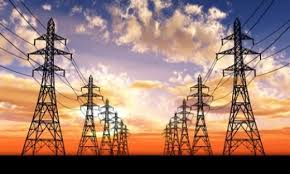
attempt to take down the entire U.S. power grid. They were disturbingly successful, but the attack didn't even make the front pages.
That's because it was a simulation, a war game called Grid Exercise II, successor to a smaller simulation that took place a year earlier, in which close to 10,000 electrical engineers, cyber-security experts and FBI agents took part across the country in a two day battle to ward off everything the red team attackers could think of to throw at them and keep America's lights on. They came thick and fast. “They were trying to drive their people to saturation,” one participant said. In all, 210 companies participated, including those in Mexico and Canada that are linked into our grid.
The outcome? Tens of millions of notional Americans lost power and were shrouded in darkness; hundreds of transmission lines were destroyed or damaged; seven police, fire and utility workers were figuratively killed when they went to investigate equipment failures and were confronted by simulated attackers still at the sites.
back to reality
Americans are mostly oblivious to the hundreds of daily cyber probes by foreign governments and militaries into our corporations to steal industrial secrets and probe for weaknesses. It is telling that it took hacking into a movie company and exposure of gossipy insider e-mail to spark the public's interest.
But apart from Sony Pictures' spineless cave-in to North Korean threats and a willingness to throw free speech into the trash bin, this was just an embarrassing incident compared to what a successful cyber attack against an essential industry could bring.
The most essential of all industries is the national electrical grid of 3,200 utilities that deliver
power over 2.7 million miles of power lines, what Bloomberg/BusinessWeek called "the largest machine in the world". The interconnections between the nation's three separate electric systems are such that saboteurs could bring about a coast-to-coast blackout by knocking out just nine of the country's 55,000 electric-transmission substations — four in the East, three in the West and two in Texas. That was the conclusion of the Federal Energy Regulatory Commission (FERC) last March in an analytical report that when announced was completely ignored by the evening and morning news programs on ABC, CBS, and NBC in favor of the usual trivial fare (a new revelation about Princess Diana, an obituary for a movie-trailer voiceover artist, the latest winter storm, e.g.).
The U.S. has experienced a number of regional outages, most recently from Hurricane Sandy, which left 20 million people without electricity, some for longer than a week. In August 2003 power failed from Detroit to New York, affecting 50 million (not taken all that seriously: there was a festive mood in New York City that night as people left their darkened apartments and crowded the streets and outdoor restaurants).
porous defenses
But compared to an outage caused by a temporary equipment failure, Americans have no conception of the consequences of an attack should it succeed in destroying key components of the grid. Transformers at substations boost the voltage of electricity so it can cover distance. They then reduce the voltage to a level that homes and businesses can use. Many are in remote locations, with cameras and chain-link fences their only protection. If key units among the 2,000 transformers in the U.S. were destroyed, there are only a few U.S. factories that build them — seven, says the Wall Street Journal.
A cyber attack might take the form of Stuxnet, the successful sabotage of Iranian centrifuges assumed to have been by the U.S. and Israel that made them spin out of control. The worm that found its way into the centrifuges manipulated the industrial control devices of the sort that open and close valves, govern speed and temperature, etc. — equipment that is in use throughout industry around the world.
A physical attack might take the form of bombing or the incident — still unsolved it seems — where in April of 2013 shooters opened fire on a California substation and took out 17 large transformers that supplied power to Silicon Valley. It took 27 days to make repairs.
Replacement is another matter. Transformers are custom made, weigh up to 500,000 pounds, and can cost millions. "I can only build 10 units a month," the general manager of one plant told the Journal reporter.
That means, according to an after-action report from the FERC war game, that if an enemy knew which nine substations to take out, "the entire United States grid would be down for at least 18 months, probably longer".
worst case
"A cyber Pearl harbor", said Leon Panetta when still defense secretary, trying to goad the government into preventive action. Actually, it would be far worse.
Darkness would be the least of it. A coordinated strike on the grid would devastate the country. Air traffic control would immediately go blind, with planes aloft having to coordinate with other aircraft on their own in attempting to land. Collisions would be almost inevitable.
Train traffic controls would go blank as well. Energy pipelines would shut down, as would the pumps on which the water supply depends. Cell phone towers would fall silent. We'd lose connection to the Internet and fall into a near total information void with little other than landline phones working.
Bank systems would go dark. Cash would be unavailable at ATMs or at bank counters, where clerks would be unable to see accounts and balances. Credit and debit cards would no longer work. In other words, with few now carrying paper money, people would have no money — for months — and need to barter for food.
Gas and diesel pumps would not work. Trucking would therefore screech to a halt, as would deliveries of that food. People would be unable to commute to work, or would not be of much use once they got there. The economy would collapse.
And very quickly, fear and panic would lead to violence. Imagine this being the condition for 18 months.
That worst case scenario is far-fetched when considered as a physical attack. How unlikely is it that some domestic organization could divine which are the nine substations and launch a coordinated attack across the United States with no prior detection? It is nevertheless important to awaken the public to just how severe any level of disruption would be so that we force action from our so-called leadership.
The cyber threat is another matter, an attack from outside the country. Of Russia, North Korea and China, the most likely transgressor would be China, which already employs software engineers in the thousands to infiltrate American corporations and steal their technology — thefts that are believed to have cost hundreds of billions of dollars in stolen R&D.
That same technological ability to worm into a corporation's innards could be redirected to sabotage. In February 2013, The New York Times broke the story that American intelligence has known for years that "an overwhelming percentage of the attacks on American corporations, organizations and government agencies originate" from a single building in a non-descript neighborhood of Shanghai and that all indications are that the operation is run by the Chinese army.
ultimate zapsIf hostilities between advanced nations are allowed to intensify in this fractious world, a far worse possibility is a nuclear-tipped missile designed to detonate at high altitude. Interacting with Earth's magnetic field, it would generate an electromagnetic pulse (EMP) of high amplitude that would play havoc with electrical equipment on the ground. 
Major solar flare (lower right)
on Oct. 24, 2014 erupting from the
largest sunspot in 24 years.
Solar flares, too, produce EMPs on Earth from 93 million miles away, and we are in a period of high solar activity. A solar flare took down the electric system in Labrador in the middle 1990's. A flare with an aurora one "could read a newspaper by" took out most of the telegraph system in the United States in 1859. Experts say if such a flare hit the U.S. today it would take down the grid for about 10 years. In an area struck by an EMP, power lines are turned into generators that overload and burn up high voltage transformers.
So what are we doing about it?
Not much. It might seem that nothing could be done about a solar or nuclear EMP, but in fact transformers can be hardened to withstand such an event. We saw that the utilities are at least imagining what could happen, but we found little to indicate they are taking it upon themselves to install cyber shields and physical fortifications. In America, money and profit are all, and making and keeping are worth courting disaster.
For a disinterested public, it's a mundane industry taken for granted. Movies and books paint the horror pictures just described, but Americans compartmentalize that as fantasy. So while the populace should be marching on Congress to demand laws, we are silent.
In 2009, President Obama had already called the cyber threat "one of the most serious economic and national security challenges we face as a nation…the very technologies that empower us to create and to build also empower those who would disrupt and destroy". He would later, in the wake of congressional inaction, only ask industry to set standards for securing their computer networks, offering help from the Department of Homeland Security to better protect critical infrastructure.
That inaction took place in 2012, with nothing done since. Senate bill S 3414 sought to give water facilities and electric utilities incentives to meet cyber-security goals. But this was met with adamant resistance from the U.S. Chamber of Commerce — a business lobby that influences campaign contributions — and that led to a Republican filibuster that blocked the bill from becoming law even though compliance would be only voluntary, even though it would be left to businesses to decide for themselves what defensive measures to take, even though taking such measures would indemnify them by law from suits by customers arising from damages of cyber attacks. The chamber warned its corporate sponsors that what is voluntary now would become mandatory — which of course the protection of critical infrastructure should be. Yet Republican senators were persuaded that such requirements impose too great a regulatory burden. So we are witness to the harm of money in politics extending so far as to leave the country existentially vulnerable.
1 Comment
climate change
Oct 10 2014
If we don’t take immediate and concerted action to slash fossil fuel emissions, we face “high to very high risk of severe, widespread, and irreversible impacts globally” from climate change, according to a leaked draft of a report by the U.N. Intergovernmental Panel on Climate Change (IPCC).
But in this country, there is no possibility for the all-encompassing energy 
policy that is needed to confront the threat. The Obama administration has raised auto fuel efficiency standards and is moving to restrict power plant emissions, but Republicans and those Democrats who hail from coal-producing states call the plan a “war on coal” and will sue to keep them belching pollution. The American public is largely indifferent. Constant naysaying in the partisan media has persuaded 1 of 4 Americans that global warming is a hoax or of little concern, says an April
Read More »
energy
But Congress hates cap-and-trade that industry likes
Jun 10 2014
The surprise that followed the introduction of President Obama’s plan for reducing carbon emissions from power plants was the discovery that protesting lawmakers are curiously out of step with many in the industry itself.
In a post to his web page, House Speaker John Boehner proclaimed that “The President’s plan is nuts”. In keeping with all who oppose the Environmental 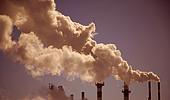
Protection Agency’s proposal, he stressed job loss. “Every proposal that has come out of this administration to deal with climate change involves hurting our economy and killing American jobs. That can’t be the prescription for dealing with changes in our climate”, he said.
Unexpectedly, some who actually run utility companies spoke out in favor. The plan leaves it to each state to develop its own plan to meet state-wide emission targets set by EPA, giving them the leeway of choosing whatever mix of…
Read More »
climate
Passing the 400ppm milestone, we head for 2°C warmer
Jun 6 2013
It is only six pages long — four if one counts only the main text and not the notes and references — yet it has evidently become the most influential paper in the environmental science world. What gives it such gravitas, of course, is not just the intensive computer modeling that led to its conclusions, but its way of quantifying the threat of global warming.
Published four years ago in the April 2009 issue of Nature, the preeminent science weekly, the paper is dense with the terminology of climate science and therefore largely unknown outside scientific circles, but — analogous to Google rankings — the number of references to the paper in other scientific papers and articles puts it in the top 0.1% of environmental articles and just shy of the top .001%. If citations in books, professional societies and university websites, etc. are included, as does Google Scholar, the number of referrals more…
Read More »
climate
When will the President back up his rhetoric?
Apr 22 2013
2012 was the hottest year in U.S. history, warmer than ever for all 48 contiguous states, with records set in nineteen; Australia just concluded its hottest summer ever, preceded by years of drought and wildfires; melting of the Arctic ice cap set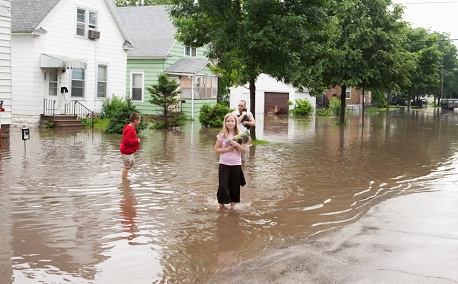
records last year, receding even faster than predicted; a superstorm devastated New York and environs, the biggest of 11 major weather events that brought us a flurry of tornados and droughts of our own; and recently April was the cruelest month in Argentina, with the entire month’s average of 13 inches of rain falling in just 12 hours, flooding the city of La Plata and causing over 50 deaths.
The list of calamities seems to have no end, a consequence, climate scientists believe, of increased climate warming. In fact, NASA’s James Hansen, the first to sound the alarm about global warming before Congress in 1988, says “the five-year mean global temperature has been flat for a decade.”
How’s that again? Temperatures have not been rising?
True. And it’s a fact that has climate scientists like Hansen puzzled. Heat records set around the world, but the overall global temperature has plateaued in…
Read More »









